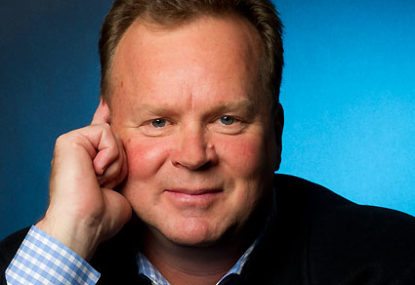Depending on how good a negotiator you are – and possibly the calibre of your client – now seems to be either a really good or a really bad time to be talking player contracts with the Australian Rugby Union.
Since David Nucifora stepped down as head of the ARU’s High Performance Unit (HPU) in the days surrounding John O’Neill’s departure from the big chair, I’ve wondered about this situation regularly.
And the negotiations are clearly going on, because the stories keep coming out. And not necessarily in a good way.
We got a glimpse into how wacky the contracting game might be getting a few weeks back, when it emerged – deliberately, I’m sure – that young Reds flanker Liam Gill wasn’t in line for an ARU top-up cherry on top of his next slice of Queensland pie.
The reactions ranged from mild bemusement to outright disgust, and with few (if any) commentators coming out in support of HQ.
My first thought was one of maths. I don’t know how many top-ups the ARU intend to offer for 2014, but I would imagine it’s somewhere between a match squad of 22 and a training squad of 30.
Given the Wallabies used 40-plus players in 2012, I imagine the number is closer to the latter.
So working on this assumption, how can it be there isn’t room for a third specialist opensider in the top 30 Australian players? And will halfbacks and hookers be similarly scored?
There might be some bad news coming up for Saia Fainga’a and Nick Phipps if this is the case (and assuming they’re still rated as high as third choice).
Then came Greg Growden’s revelation – on April 1, mind you – that Rebels’ roaming playmaker James O’Connor has had “discussions” with the Brumbies.
It took a personal reply and some follow-up chat with ESPN Scrum‘s editor, as well as a follow-up Growden article on April 5 to convince me this wasn’t an April Fool’s gag.
I would find it incredibly hard to believe O’Connor’s next contract wouldn’t also have an ARU component included. So who’s he talking to?
In fact, I wonder if young James’ ARU value hasn’t levelled off over the last 12 months, even if only by association with his fellow ‘Amigos’ and the Jacuzzi crew, or whatever the hell that weird picture was about.
Finally, we hear this week the new man in the corner office, Bill Pulver, strongly believes code-hopper and blooming Waratah Israel Folau will not only remain in rugby, but the lure of becoming an Olympian will be enough to keep the circling NRL club vultures at bay, not just for 2014, but for the next three years.
In fact, the new CEO did more than just dangle the well-dangled Olympic carrot; he went on to make all sorts of promises about the make-up of an Australian Olympic Sevens team:
“I can promise you the best of the Wallabies who are interested in playing sevens rugby will be part of the sevens rugby team at Rio. And it will be great to see the likes of Israel Folau and James O’Connor playing alongside some of the great young talent we are developing in sevens chasing that gold medal.
“With due respect to all other codes, that is the chance of a lifetime.”
That may well be the case Bill, but have you considered that maybe Israel might be more interested in playing NRL for the two years before that? And how many Wallabies are actually interested in sevens? And hasn’t Michael O’Connor already said he couldn’t see any Wallabies giving up Super Rugby for sevens, even in an Olympic year? And does James know of your plans?
Pulver’s comments just highlight the current messiness surrounding the administration of the Australian rugby currently. The obvious questions abound, and certainly aren’t limited to the following:
Are we any closer to naming a new HPU head?
Who is conducting these negotiations on the ARU’s behalf in the absence of an HPU head?
Who is currently making the decisions on top-ups and who does and doesn’t get them?
Are these decisions being based on form or marketability considerations?
Maybe, thinking while writing this, now is the time to review the whole contracting method the ARU have implemented currently.
Is now the time to take a closer look at the New Zealand method of centralised contracts with the national body, with players then farmed out to Super Rugby sides, rather than this hotch-potch of players holding separate state and Wallaby contracts?
With more and more talk about players in what used to be considered ‘their prime’ supposedly looking at overseas deals, it’s clear the current situation needs some rather urgent attention.
And that’s from all stakeholders involved: players, their managers, coaches, and even we the fans.
If no one knows – or has faith in – what is going on, how confident can anyone be in the process?





























































































